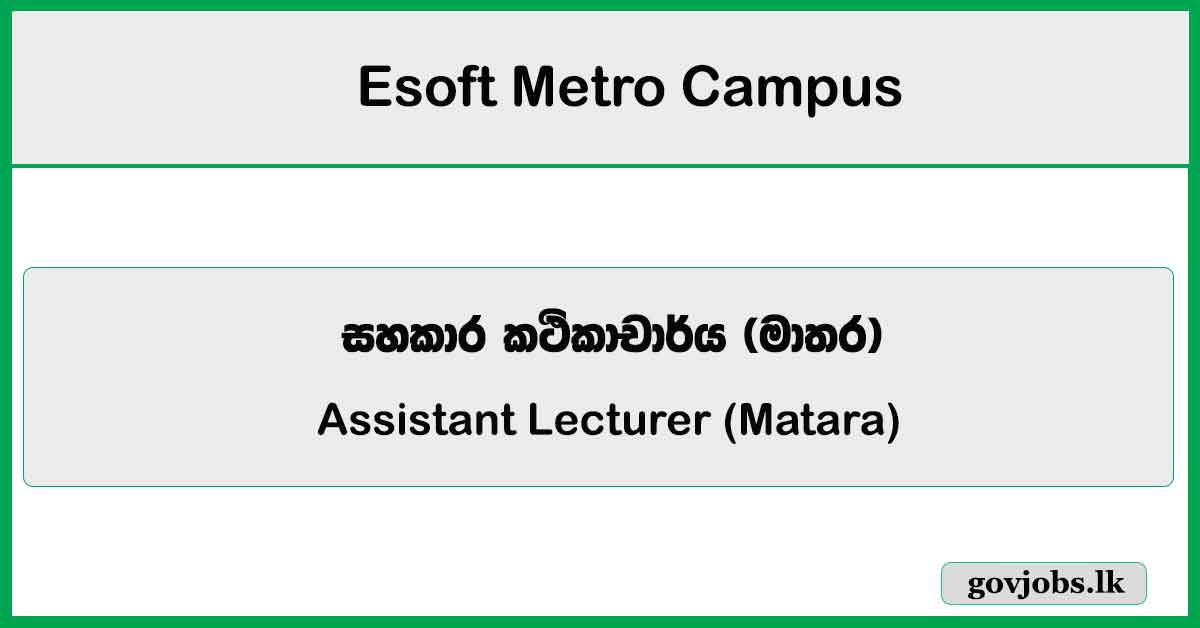Esoft Metro Campus invites applications for the post of Assistant Lecturer. You can apply to it before closing date as per the following details. Closing date and other job details are given below.
Esoft Metro Campus Available Job Vacancies for 2024
- Assistant Lecturer (Matara)
English Job Advertisement Preview
Assistant%20Lecturer%20%28Matara%29%20-%20Esoft%20-%20www.gazette.lkAssistant Lecturer Full Job Vacancy Details
| Employer | Esoft Metro Campus |
| Job Title | Assistant Lecturer |
| Closing Date | 2024 – 10 – 07 |
| English Advertisement Download | Download PDF |
| Source | topjobs.lk |

